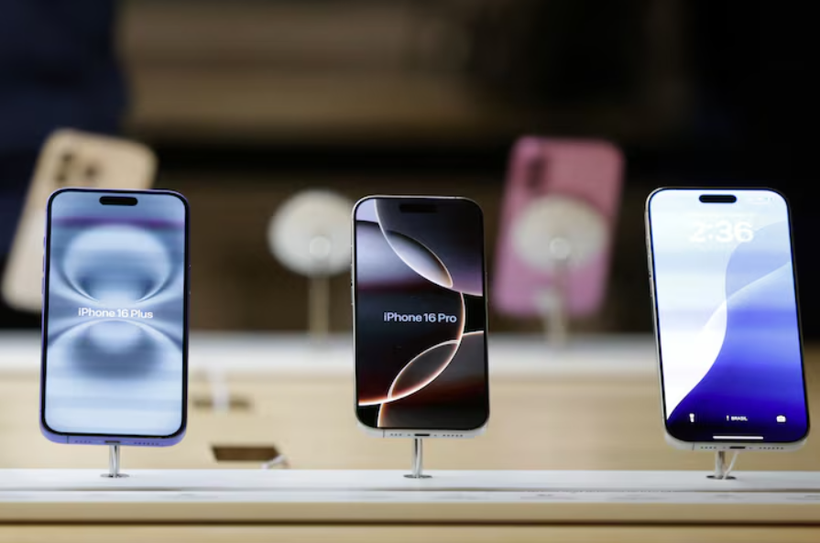Smartphones, computers and some other electronics, which have been exempted from import tariffs, will face separate new tariffs along with semiconductors in the next two months, US Commerce Secretary Howard Lutnick said.

Lutnick’s comments on ABC’s “This Week” on April 13 about the tariffs on key technology products marked the latest twist in President Donald Trump’s tariff plans, which have upended the global trade order and roiled financial markets since they were announced on what Trump called “Liberation Day” on April 2.
Late on April 12, the Trump administration announced reciprocal tariff exemptions for smartphones and a range of other electronics products, a move seen as a major breakthrough for technology companies like Apple and Dell Technologies, which rely on imports from China.
Trump’s tariff moves have sparked a trade war with China and caused the most violent swings on Wall Street since the COVID pandemic in 2020. The S&P 500 has fallen more than 10% since Trump took office on January 20.
Mr. Lutnick said Mr. Trump would enact “a particularly focused tariff” on smartphones, computers and other electronics in a month or two, along with tariffs targeting semiconductors and pharmaceuticals. He said those new tariffs were in addition to Mr. Trump’s reciprocal tariffs.
“He said they’re exempt from reciprocal tariffs, but they’re included in the semiconductor tariffs, which will probably go into effect in a month or two,” Lutnick said in an interview on ABC, predicting that the tariffs would help bring manufacturing of those products back to the U.S. “These are national security things that we need to make in the U.S.”
With these comments, Mr. Lutnick appeared to be teasing more information about a new round of tariffs. Earlier on April 12, a White House official told the media that Mr. Trump would soon open a new national security trade investigation into semiconductors, which could lead to the imposition of new tariffs.

Beijing raised tariffs on US imports to 125% on April 11 in retaliation for Mr Trump’s tariffs. China said on April 13 that it was assessing the impact of Mr Trump’s exemptions on technology products.
“The bell on the tiger’s neck can only be removed by the person who tied it,” China’s Ministry of Commerce said.
Billionaire investor Bill Ackman, who supported Mr Trump’s presidential campaign but criticized his tax policy, called on Mr Trump to suspend exceptionally high reciprocal tariffs on China for three months, as he did with most other countries last week.
“If President Trump were to suspend tariffs on China for 90 days and temporarily reduce them to 10%, he would achieve the same goal of getting US businesses to relocate their supply chains from China without causing disruption and risk to those businesses in the short term, and he would have time to negotiate a deal with China,” Ackman wrote on X.






